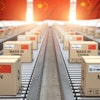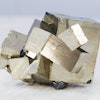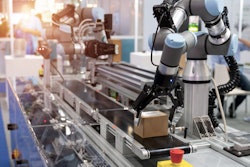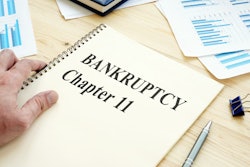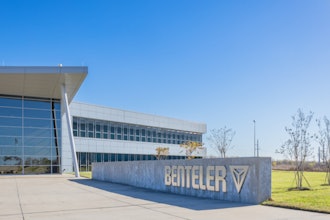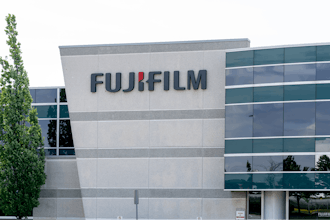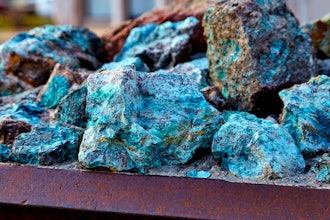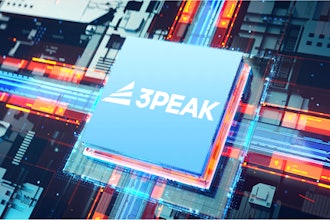JERUSALEM (AP) -- An Israeli maker of home soda machines hopes to make a splash in the U.S. soft drink market through a global advertising campaign it will launch during Super Bowl XLVII.
For SodaStream, the advertising push marks a bold — and risky — bet on tapping into the tastes of the world's largest soft drink market. But opposition from major beverage makers, and potential criticism of the company's operations in the Israeli-occupied West Bank, could hinder SodaStream's goal of making it big in the U.S.
The company says it is the world's biggest manufacturer and distributor of home beverage carbonation systems, which it is trying to position as a cheaper and environmentally friendly alternative to bottled soft drinks. SodaStream says its machines offer a simple and compact, do-it-yourself solution for those who want to carbonate their own drinks.
"This is the new way to do soda. We're revolutionizing it," said SodaStream CEO Daniel Birnbaum. "There exists a smarter way to enjoy soft drinks, getting the bubbles without the bottles."
He said the world's soft-drink giants are relying on an outdated business model, and have hurt the environment by generating some 1 billion bottles each day. SodaStream's drinks can be made one glass at a time, or can fill reusable bottles, then flavored with juices or other mixers.
SodaStream has enjoyed widespread success in Europe. It says 25 percent of Swedish households use its products, and reports similarly high rates in countries like Finland and the Czech Republic.
But in the U.S., the household penetration rate is just 1 percent. Birnbaum is confident that with his publicity blitz, beginning with the Super Bowl, he can gradually bring that number closer toward the European levels.
"We're talking about revolutionizing consumer habits and behavior, but it'll happen," he said.
The company has been in the U.S. for only about four years. To make its machine more desirable, it has formed partnerships to offer a variety of concentrated, liquid flavors that users can squeeze into their water. For example, users can make drinks with Kraft's Kool-Aid.
The Super Bowl, advertising's largest showcase, provides a golden opportunity for SodaStream to put itself on the map. Last year, the National Football League's championship game garnered an estimated 111.3 million viewers, according to Nielsen.
But it comes at a great cost. A 30-second spot costs about $3.5 million, no small sum for SodaStream, which reported net earnings of $27.5 million in all of 2011.
But industry experts remain skeptical about the product's true potential and reach. ?
John Sicher, editor and publisher of the trade publication Beverage Digest, said he was skeptical about SodaStream's prospects and predicted it could fizzle.
While the product is interesting, he said it would probably remain a niche item. Soft drink volume has steadily dipped in the U.S. by 1 to 2 percent a year since 2005.
"Certainly the cool gadget factor of it and the novelty will attract some users, but people like consuming brands," he said. "SodaStream is not to be considered a phenomenon."
Wall Street liked SodaStream's growth prospects, driving it up to a peak near $80 in mid-2001. The love affair has cooled, and the stock is now trading around $40.
Birnbaum said the naysayers are simply living in the past.
"The bottle and can thing will be illegitimate and uncool one day," he said. "It's harmful to people and the environment. It won't be long until soda companies realize this and start offering do-it-yourself solutions of their own. Or they'll be behind."
Skepticism and direct competition aren't the only challenges. SodaStream has come under fire by pro-Palestinian groups because of its operations in the Israeli-occupied West Bank.
The company's main factory is located in the Jewish settlement of Mishor Adumim.
Pro-Palestinian activists who advocate boycotts of goods produced in Jewish settlements have encouraged the public to shun SodaStream. The Palestinians claim the West Bank, which Israel captured in the 1967 Mideast war, as part of a future independent state.
Activists claim the company has profited from Israel's occupation of the West Bank. They say Palestinian workers have suffered from low wages and poor working conditions and criticized the company for receiving economic incentives, including tax deductions, from the Israeli government.
"The new SodaStream publicity blitz has given the U.S. boycott, divestment, sanctions movement a marvelous opportunity to bring our campaigns targeting settlement products to a new, unprecedented level of visibility and success," said Anna Baltzer, an organizer of the U.S. Campaign to End the Israeli Occupation.
"It's time to burst SodaStream's bubble. There's nothing environmentally friendly about military occupation," she said.
The boycott movement has generally had a minimal impact on Israeli businesses.
Aside from political backlash, last month the United Kingdom banned a SodaStream TV advertisement saying it disparaged other soda manufacturers. In the 30-second advertisement, soft drink bottles simultaneously combust as people use the machine at home to happily carbonate their drinks.
Birnbaum called the boycotters a "confused bunch."
"We don't strengthen or support the occupation. What we're doing is taking a facility in the occupied territory and giving Palestinians a career and economic benefits. I've got to laugh when they think we're on the wrong side of this. We're part of the solution. We build bridges, not walls."

